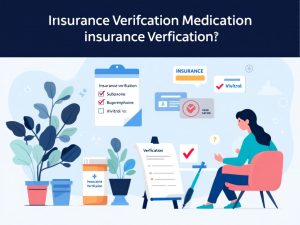Start with immediate support
If you or someone you love feels overwhelmed by thoughts of self-harm, please prioritize your safety by seeking suicide crisis intervention right away. Pick up the phone and call or text 988, or consider texting “TALK” to 741741 for immediate support if you are based in the United States (AFSP). If you are outside the U.S., you can find crisis lines in your country at Suicide.org. Reaching out may feel daunting, but initiating that conversation can be a vital step in saving a life. Even if you are unsure whether your situation qualifies as an emergency, trust that these hotlines—and caring professionals—are prepared to offer guidance for crises of any kind. In essence, when you are uncertain about your capacity to manage intense hardship, there is no harm in contacting these resources.
Your well-being is worth protecting. When painful circumstances like depression, anxiety, or overwhelming hopelessness persist, you deserve support that addresses the core challenges impacting your mental health. You may feel tied down by heavy emotions or unrelenting stress, but remember: seeking help is not a sign of weakness. By engaging in timely crisis intervention strategies, you increase your odds of making it through the darkest periods and reuniting with optimism. In many cases, a short phone call or text can reconnect you with reasons to live and can provide instant relief from isolation.
If you suspect that a friend or loved one is struggling, do not underestimate the power of a gentle dialogue about mental health. You can also encourage them to utilize suicide prevention hotlines. Because many mental health challenges intersect with substance use, persistent emotional turmoil, or other factors, it is also beneficial to connect with a reputable, comprehensive care provider like Epic Health Partners. With Epic Health Partners, you can explore options such as a partial hospitalization program php or a telehealth therapy services format that respects your schedule and personal needs. In crisis, every second matters, so do not wait to seek the lifesaving support you deserve.
Understand risk factors for suicide
Suicide tragedies rarely happen out of nowhere. According to the American Foundation for Suicide Prevention, many risk factors often converge to create such crises, including health conditions like depression, anxiety, or addiction, as well as significant life changes or personal history involving trauma (AFSP). When left unaddressed, these elements can erode one’s sense of hope, leading to dangerous levels of despair. Recognizing these risk factors early is integral to effective suicide crisis intervention.
Below are some commonly identified risk factors:
- Mental health conditions: Untreated depression, anxiety, bipolar disorder, or other psychiatric conditions can heighten risk.
- Substance abuse: Overreliance on alcohol or drugs can cause damaging shifts in mood and judgment, especially when combined with a mental health condition.
- Chronic pain or severe medical issues: Ongoing physical discomfort can contribute to hopelessness if adequate coping tools are not established.
- Traumatic events and history: Past experiences, like childhood abuse or recent major losses, can elevate feelings of isolation or shame.
- Lack of support: Lacking a trusted circle of friends, family, or community members can deepen despair.
Understanding these factors equips you with the awareness to seek assistance before a crisis spirals. You might notice a friend’s mood swings or observe alarming changes in their social habits. Even statements that hint at giving up on life should be treated seriously. Early acknowledgment of these signs opens the door to timely professional help, from individual therapy mental health to group-based interventions.
Effective support also depends on raising awareness that suicide risk is multi-faceted. The Centers for Disease Control and Prevention note that community-level factors, such as economic stress or exposure to violence, may also contribute to suicidal ideation (CDC). By educating yourself about these various influences, you become more proactive in connecting your loved ones—and yourself—to the aid necessary.
Build on protective factors
Protective factors work as a buffer against suicidal thoughts. Identifying or cultivating them is an essential part of any thorough suicide crisis intervention plan. These factors, as outlined by mental health organizations like the American Foundation for Suicide Prevention, can mitigate the intensity of a person’s desire to end their life (AFSP). Strong protective factors might include:
- Healthy relationships: Nurturing ties with family, friends, and community groups helps you feel connected rather than isolated.
- Access to clinical care: Having contact with mental health professionals who can provide tailored treatment helps reduce symptoms that might evolve into a crisis.
- Positive coping strategies: Practical skills such as mindfulness exercises, journaling, or creative pursuits can help defuse overwhelming emotions.
- Spiritual or cultural beliefs: For some individuals, faith communities and cultural values affirm that survival matters and life has intrinsic meaning.
- Resilience and self-esteem: Believing in your capacity to overcome obstacles, even if progress is slow, can combat feelings of futility.
Promoting these factors within a supportive environment can encourage long-term stability. For instance, if you are feeling weighed down by daily stressors, an outpatient program that includes cognitive behavioral therapy cbt might help you reframe self-defeating thoughts. If you need versatile scheduling, a telepsychiatry services platform can give you ongoing contact with mental health professionals without requiring frequent in-person visits.
By strengthening protective factors, you do more than manage crisis periods; you create a foundation of resilience that honors your ability to heal. If you find that you respond well to group dynamics, exploring a group therapy mental health program can unlock fresh perspectives and let you connect with others who empathize with the unique hurdles you are facing. Your direction matters, and you can experience marked improvements by reinforcing your sense of self-worth every day.
Explore effective interventions
When suicidal thoughts unfold, they can drastically narrow your capacity for problem-solving, making it difficult to imagine alternatives to ending your life. Fortunately, several evidence-based interventions exist to guide individuals through their darkest moments. Organizations such as the American Foundation for Suicide Prevention identify three key strategies for successfully managing these crises (AFSP):
Safety Planning Intervention (SPI)
Developing a safety plan in collaboration with a mental health professional lays out what to do when distress escalates. It might involve identifying warning signs, listing coping strategies for intense moments, and noting professional contacts or safe environments. Your unique plan can include reminders that you have positive reasons to stay alive, such as family, friends, or personal achievements.Lethal Means Counseling (LMC)
This approach emphasizes reducing immediate access to potentially deadly tools, from firearms to large quantities of medication. Removing or limiting these means is crucial because many suicide attempts occur impulsively during severe emotional turmoil. By creating physical distance between you and lethal items, you buy time for suicidal impulses to lessen or for help to arrive.Crisis Response Planning (CRP)
Within CRP, you and a clinician craft a set of strategies that proactively address your personal stressors. You link specific triggers or risk factors to coping tactics—for instance, calling a friend or engaging in an activity that calms you. This type of intervention empowers you to reclaim control by preparing for potential crises, rather than reacting in the heat of the moment.
A quick summary of these strategies:
| Intervention | Key Components | Goal |
|---|---|---|
| Safety Planning Intervention (SPI) | Identify triggers, coping tools, and expert contacts | Provide a structured plan for crisis moments |
| Lethal Means Counseling (LMC) | Restrict access to lethal items | Buy time for at-risk individuals |
| Crisis Response Planning (CRP) | Link stresses to effective coping | Equip you with a proactive roadmap |
Each intervention demands collaboration with a professional who understands your unique challenges and can adapt the method to suit your circumstance. At Epic Health Partners, our qualified clinical team can help guide you through SPI, LMC, or CRP as well as innovative therapies like dialectical behavior therapy dbt or motivational interviewing therapy. During an initial psychiatric evaluation outpatient, our experts learn about the scope of your situation, helping you map out the best approach to protect your well-being.
Seek professional support options
For many individuals, a single encounter with a hotline is not enough to curtail severe suicidal ideation. While crisis lines are indispensable, comprehensive professional care remains vital to address underlying issues. This is particularly true when mental health conditions, addictions, or historical traumas intersect, intensifying the crisis. Ongoing therapy, medication support, and personalized outpatient care create a powerful safety net.
If you are juggling work, family obligations, or can’t commit to full-time treatment, you may consider an intensive outpatient program iop. This option offers structured sessions multiple days a week while allowing you to continue your everyday responsibilities. Alternatively, a partial hospitalization program php can be ideal if your symptoms require greater care but you are not in immediate need of round-the-clock supervision.
Outpatient therapy enables you to work consistently on mental health goals over time. Whether you opt for individual therapy mental health or prefer a group-based approach, you can expect to explore coping strategies for emotional distress while receiving valuable peer and professional feedback. If you’re frequently on the go or live in a remote area, telehealth therapy services make it possible to receive consistent guidance from the comfort of your home.
In addition, specialized care like medication assisted treatment mat can be incredibly effective if your suicidal thoughts are tied to addiction or substance use disorders. Combining carefully monitored medications with counseling can stabilize your emotional state, helping you regain clarity and motivation to address the deeper issues feeding the crisis. It’s a holistic approach that highlights the synergy between medication, therapy, and ongoing support.
By stepping into a therapeutic setting, you align yourself with a path that fosters resilience and promotes long-term healing. Sweeping feelings of hopelessness are not permanent, and with the right medical oversight, they can be addressed proactively. Trust that the path to feeling more peaceful exists, and professionals trained in suicide crisis intervention are committed to guiding you there.
Trust Epic Health Partners’ difference
Choosing a treatment center is a deeply personal decision, particularly when it involves safeguarding your life or that of someone you hold dear. At Epic Health Partners, we bring industry-leading, evidence-based, holistic behavioral health services to people from all walks of life. Because we recognize the unique complexities that fuel suicidal ideation, our outpatient programs and clinical teams tailor treatment to your history, emotional triggers, and ambitions. You are not just another case—we see you as a person with inherent strengths waiting to be discovered and nurtured.
Comprehensive and individualized plans
Through our comprehensive crisis services, we aim to address your condition from multiple angles. This well-rounded approach can involve a mix of therapies, such as cognitive behavioral therapy cbt and trauma informed counseling. In addition, our medication management services ensure consistent monitoring of any prescribed medications, adapting dosages if necessary to uphold your safety and comfort. By combining various resources under one coordination framework, we ensure your mental health care remains cohesive and structured.
Moreover, we realize that family dynamics often play a significant role in emotional support. If appropriate, our family counseling mental health sessions can help mend strained relationships or fortify strong ones, ensuring you have a stable network to lean on through every phase of recovery. We also encourage the integration of holistic wellness support options that might include mindfulness practices like yoga or relaxation techniques, reinforcing your ability to handle stress in healthier, more productive ways.
Emphasis on ongoing recovery
Your journey does not end once an immediate danger passes. Suicidal thoughts can re-emerge, particularly if the underlying issues go unaddressed. Our suite of continuing services—like community stabilization services, case management sud for those with substance-use needs, and relapse prevention planning—functions much like a scaffold, offering you stability even as you transition toward renewed independence.
At Epic Health Partners, we also recognize how co-occurring conditions such as anxiety or depression may accompany suicidal ideation. Our integrated model includes co occurring disorders treatment, ensuring you receive targeted support that weaves together multiple therapeutic elements. This commitment to you as a whole person underscores why our clients trust us to offer trauma-informed, practical, and empathetic interventions.
Engage in sustainable coping and support
Building a life that remains resilient against suicidal ideation involves more than short-term measures. Habits, daily routines, and therapeutic relationships can reinforce your determination to keep living, even when challenges reappear. A major aspect of this effort is consistent self-awareness—knowing which thoughts and circumstances act as “triggers” so you can employ coping strategies promptly.
Develop consistent coping skills
Coping skills can differ based on personal preference and your emotional triggers. You might find that journaling helps you process big feelings, or that physical outlets like exercise, walking in nature, or enrolling in yoga art therapy music therapy releases pent-up tension. If you are comfortable with creative expression, painting or playing an instrument might be particularly cathartic. A good plan also acknowledges the potential re-emergence of suicidal thoughts and prepares you to respond effectively rather than succumb to despair.
Consider creating a list of practical coping strategies, which could include:
- Calling a trusted friend or family member
- Utilizing a breathing exercise or guided meditation
- Reviewing your safety plan
- Practicing progressive muscle relaxation or light stretching
- Contacting your therapist or crisis line when you need more immediate support
Fortifying a repertoire of responses to stress means you can steadily address feelings of hopelessness, rather than letting them intensify uncontrollably. With a stable base of coping methods, every subsequent challenge becomes that much more manageable.
Find community support
When you connect with others who understand your struggles, your burden becomes lighter. Peer-led groups or group therapy sessions, such as our peer support groups, can offer a sense of camaraderie and shared understanding. People facing similar circumstances often exchange stories of setbacks and triumphs, demonstrating that recovery is achievable.
If you or someone dear to you grapples with the added complexity of addiction, we also recommend exploring substance use outpatient therapy. This specialized program addresses how substance abuse can intensify suicidal ideation or hamper emotional regulation. True healing requires looking at the complete picture of your life, enabling you to not just survive—but thrive.
FAQs about suicide crisis intervention
What should I do first if I or a loved one is feeling suicidal?
The top priority is to connect with immediate crisis support. You can call or text 988 or text “TALK” to 741741 in the United States for 24/7 confidential help (AFSP). If there is imminent danger, call emergency services right away. After addressing immediate safety concerns, seek professional care for a thorough assessment. Our comprehensive crisis services at Epic Health Partners remain ready to support you or your loved one throughout every stage of crisis intervention.How does Epic Health Partners guide individuals during a suicidal crisis?
Our mission is to deliver industry-leading, evidence-based behavioral health solutions that address your unique challenges. We may recommend a psychiatric evaluation outpatient appointment to understand your background, mental health history, and risk factors. From there, you can receive an individualized plan that might include medication management, therapy (group or individual), and specialized interventions like Safety Planning Intervention. We also emphasize ongoing support to help you sustain improvements long after the crisis has subsided.Are there interventions beyond therapy and medication?
Yes. Suicide crisis intervention often integrates multiple approaches. Healthy relationships, peer support, and skill-building can work in tandem with professional therapy. In some cases, removing lethal means from your environment can make a life-saving difference. Programs like trauma informed counseling or grief loss counseling may also help you process underlying emotional pain. Epic Health Partners values a holistic perspective, so your plan might include exercise, mindfulness, or artistic outlets to restore balance.What if I can’t attend in-person sessions?
Accessibility challenges should never obstruct life-saving care. If traveling to a clinic is difficult due to location, mobility, or scheduling, consider our telehealth therapy services or telepsychiatry services. You can work with professional counselors who provide a personalized approach through secure video or phone sessions. Though remote, these services deliver the same level of compassion, structure, and responsiveness as in-person treatments.How do I maintain progress after the crisis passes?
Sustaining well-being calls for an ongoing commitment to self-care, therapy, and medication if prescribed. At Epic Health Partners, we offer aftercare planning that outlines continued therapeutic and medical support you may require. You can also stay connected through peer support groups or consider programs such as a sud intensive outpatient program if substance-use challenges linger. Maintaining routine check-ins with a mental health professional ensures that if you notice a gradual return of harmful thoughts, you can address them quickly and effectively.
Take steps toward renewed life
Suicide prevention is never just about one approach or one conversation. It is an ongoing, collaborative effort that recognizes the complexity of mental health. Having a strong support network, learning to cope with overwhelming feelings, and benefitting from expert care lay a solid foundation for resilience. By seeking timely interventions like Safety Planning, Lethal Means Counseling, or Crisis Response Planning, you create the possibility of turning an urgent crisis into a lived testament of recovery and hope.
At Epic Health Partners, we encourage you to reflect on how far you have already come and what strengths you possess—even if they feel distant at times. You do not have to face crisis moments alone. Taking that first step toward professional assistance can be profoundly life-altering, whether it is enrolling in a partial hospitalization program php, connecting to medication assisted treatment mat, or simply reaching out through telehealth therapy services. Every person’s path to healing is different, yet all individuals deserve the compassion, empathy, and high-quality care it takes to feel whole again.
You are worthy of experiencing peace and rediscovering joy in life’s small moments. If you are currently wrestling with the weight of suicidal ideation—or notice someone close to you battling despair—help is within reach. Let Epic Health Partners stand beside you, ready to provide comprehensive, individualized support, so you can move forward with renewed confidence and hope. Above all, remember that even in times of darkness, a more hopeful perspective awaits with the right guidance and care.







